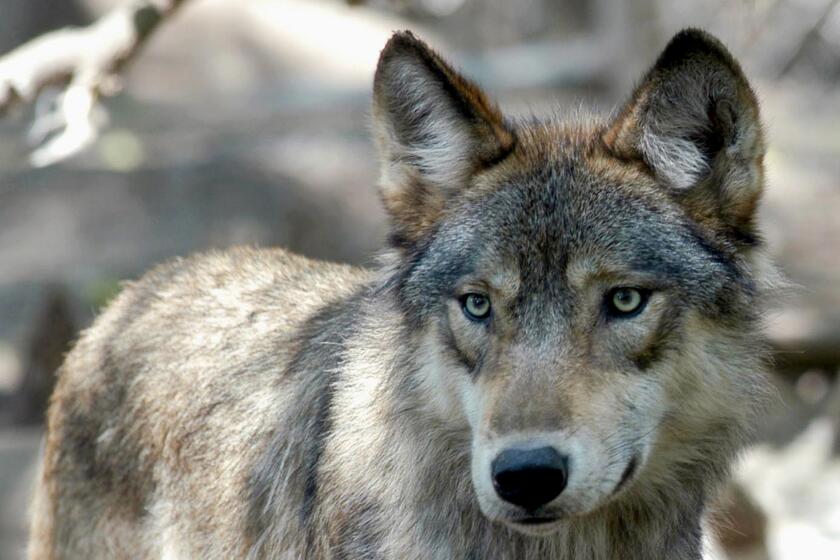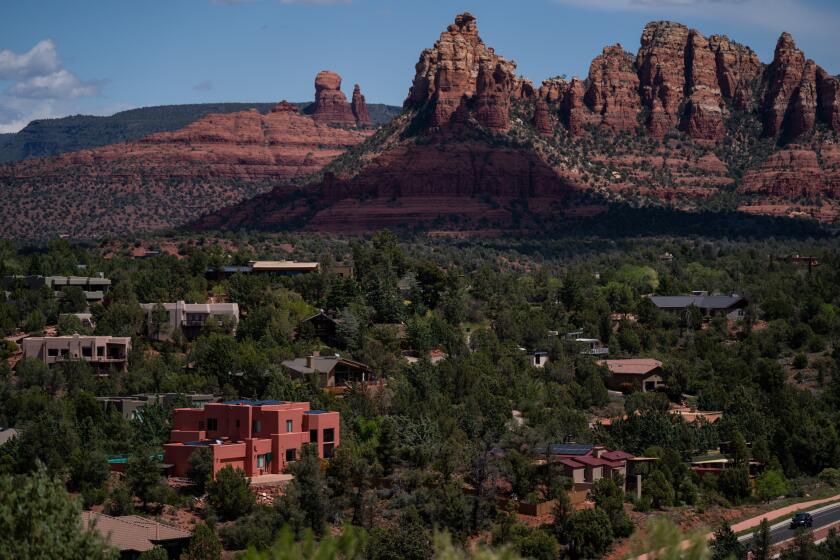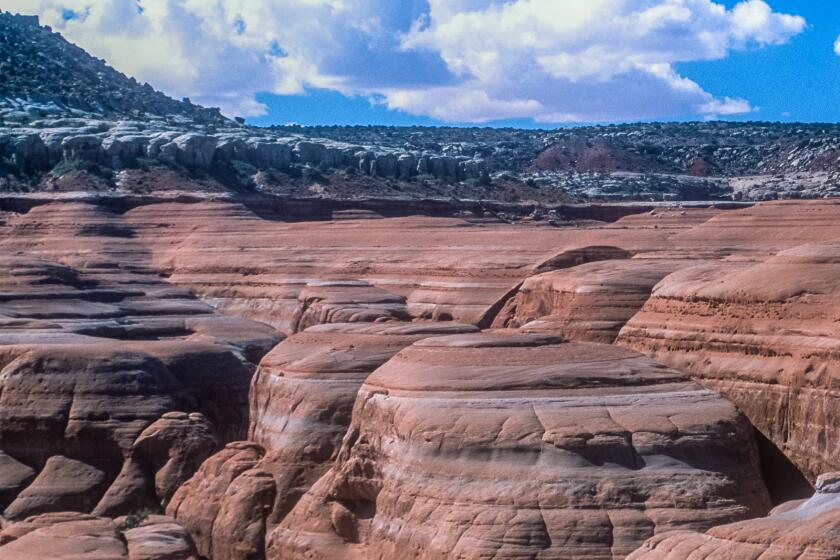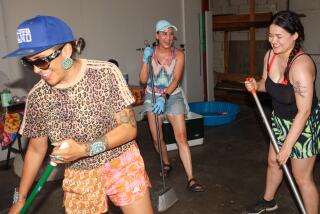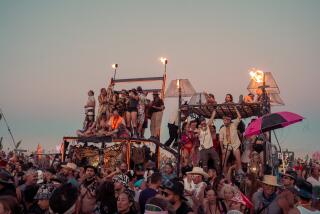Opinion: My Colorado home was once a YMCA camp. In thousands of people’s memories, it still is
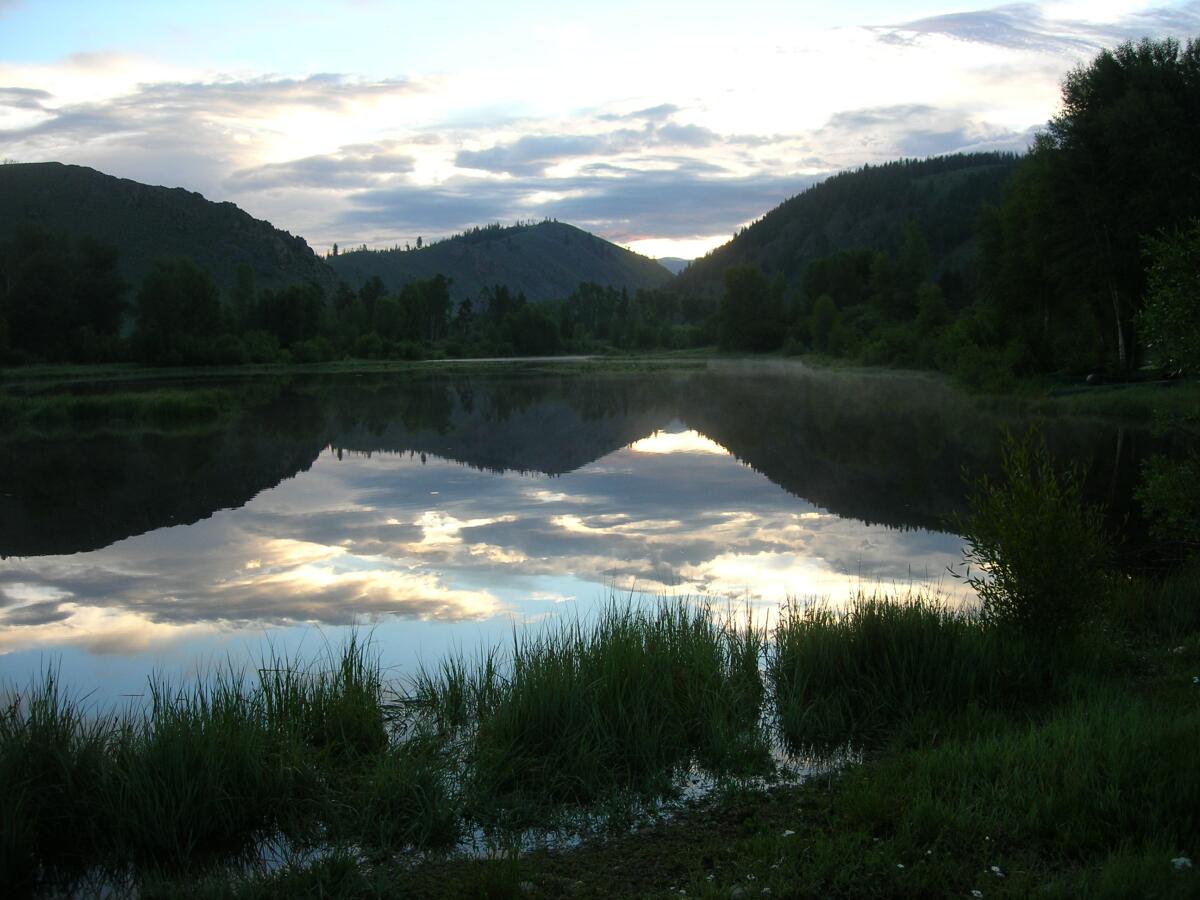
- Share via
From time to time, an unfamiliar car will drift slowly past our driveway just outside the ranching town of Granby, Colo. Sometimes it stops. Once in a while the driver backs up, pulls in and steps out. They’re typically older, and with the wistful look of a searcher.
“Did this used to be — ” they always begin.
I nod. “Camp Chief Ouray. Yes.”
The presence of apex predators improves habitat quality and species viability down the food chain. This reintroduction could be a model for repairing ecosystems.
What happens next is predictable. They look around, taking in the place as it is now, remembering how it was then — whenever “then” was. In the pause that follows, they look as though they’re reassembling something precious from scraps of memory, piecing together a part of themselves they thought they’d lost a long time ago.
“Want to look around?” I always ask.
Some do. Most don’t. My affirmation of their memory is usually enough.
“Thank you,” they’ll say, and then climb back into their car and drive away.
Day trippers from California, traffic jams and lack of housing for workers are fueling local fights over tourism and marketing.
I’ve been vaguely aware of the history of our four rural acres since my older sister built a house here in the 1990s. By then, what since 1907 had been part of the 500-acre summer camp operated by the YMCA of Metropolitan Denver had been bought by developers, subdivided and populated mostly by second-home owners retreating from urban congestion. The YMCA relocated Camp Chief Ouray about 23 miles down the road in 1979, leaving behind hiking trails, an administrative building, a baseball diamond, counselor cabins, a pond, a stable, a rifle range and an outdoor chapel.
The “ranch,” as we ersatz homesteaders call it, remains a rural idyll along the Colorado River headwaters, still surrounded by hay fields and cattle and the western-slope foothills of Rocky Mountain National Park — a landscape indelibly etched in the memories of generations of Denver kids.
Utah’s anti-Washington politicians keep trying to make our beloved parks, monuments and wilderness their own
But that curious history existed in the abstract, an interesting backstory to tell people who ask why we transplanted ourselves from Southern California in 2016 to claim our little slice of mountain paradise. Then one day in 2018, a caravan pulled into the old camp barnyard across the street.
To celebrate the 110th anniversary of Camp Chief Ouray, the YMCA had organized a tour of the old property. The takers, ranging in age from 2 to nearly 80, filled three shuttle buses. Some had been counselors, others just campers. I recognized the looks on their faces as they climbed down the bus steps.
The group leader welcomed me when I asked to tag along. He also asked if I’d bring up the rear in case any of them lingered too long in one place. He seemed to know that might be a problem, and sure enough, it was.
I found Barry Novy, a 76-year-old real estate agent who now lives in Melbourne, staring into a room that used to be the camp director’s office in what’s now a rustic two-story fishing lodge. He pointed to a desk.
“Right there,” he said, “is where I made the most important phone call of my life.”
In August 1953 he was an overweight Jewish 11-year-old whose parents put him on a train in Chicago bound for a camp run by a Christian organization. Upon arrival, he instantly felt accepted, free, self-confident and accomplished. When Novy was reluctant to leave after his four-week stay, the director pointed to the office phone and asked if he’d like to call his parents for permission to stay for another session. His parents agreed, and his love affair with the place blossomed.
Novy ended up spending 16 summers at Camp Chief Ouray between 1953 and 1970, eventually becoming its assistant director. He missed only two summers — when his father was ill in 1959, and when he got married in 1969. “I can’t imagine the impact on my life if my parents had said no during that call.”
The group shuffled past the only remaining counselor cabin; past the site of the old dining hall where eight condos now stand; past a place where a shower and bathroom facility charmingly known as “The Brown Palace” once stood; up to a hokey totem pole where concluding ceremonies were staged; down a trail to the Camp Pond, where one old-timer recalled that actor Tim Allen, a Denver native, once swam in the cold river-fed water.
Near the pond, the old rifle range was eerily intact, with safety instructions still painted on the back wall of the wooden shelter. Some visitors went directly to a windowless storage room, using the light from their phones to locate their names and the names of long-ago friends among the dozens penned into the wall.
Another trail led them to a forested chapel overlooking the Colorado River a hundred feet below. Aspen saplings were growing up between the two-by-four pews, but it’s still used whenever a neighbor’s kid or grandkid decides to stage a country wedding. At the stables, now an outbuilding on one homeowner’s property, the visitors recalled the camp horses that gave them their first taste of the Wild West. They ran their fingers over the names — Colonel, Taffy, G Boy — still stenciled on their stalls.
The group milled around the parked shuttles when the tour was over, taking pictures of each other in front of the barn and telling stories of summer loves and influential counselors and moments spent in that magic twilight between adolescence and adulthood. They were in no hurry to leave what for them seemed like hallowed ground.
Since then, I try to remember that the laughter and friendships and wide-eyed wonder of their early wilderness experiences somehow seeped into the dirt, grew up into the trees, and scented the aromatic sage and the ripening late-summer hay. Looking into their faces, I was reminded that we’re all just passing through these special places, squatters in paradise, and that this land I’m privileged to call home does not really belong to me.
Martin J. Smith, a former senior editor at the Los Angeles Times Magazine, is the author of five novels and five nonfiction books, including “Going to Trinidad: A Doctor, a Colorado Town, and Stories From an Unlikely Gender Crossroads.”
More to Read
A cure for the common opinion
Get thought-provoking perspectives with our weekly newsletter.
You may occasionally receive promotional content from the Los Angeles Times.
